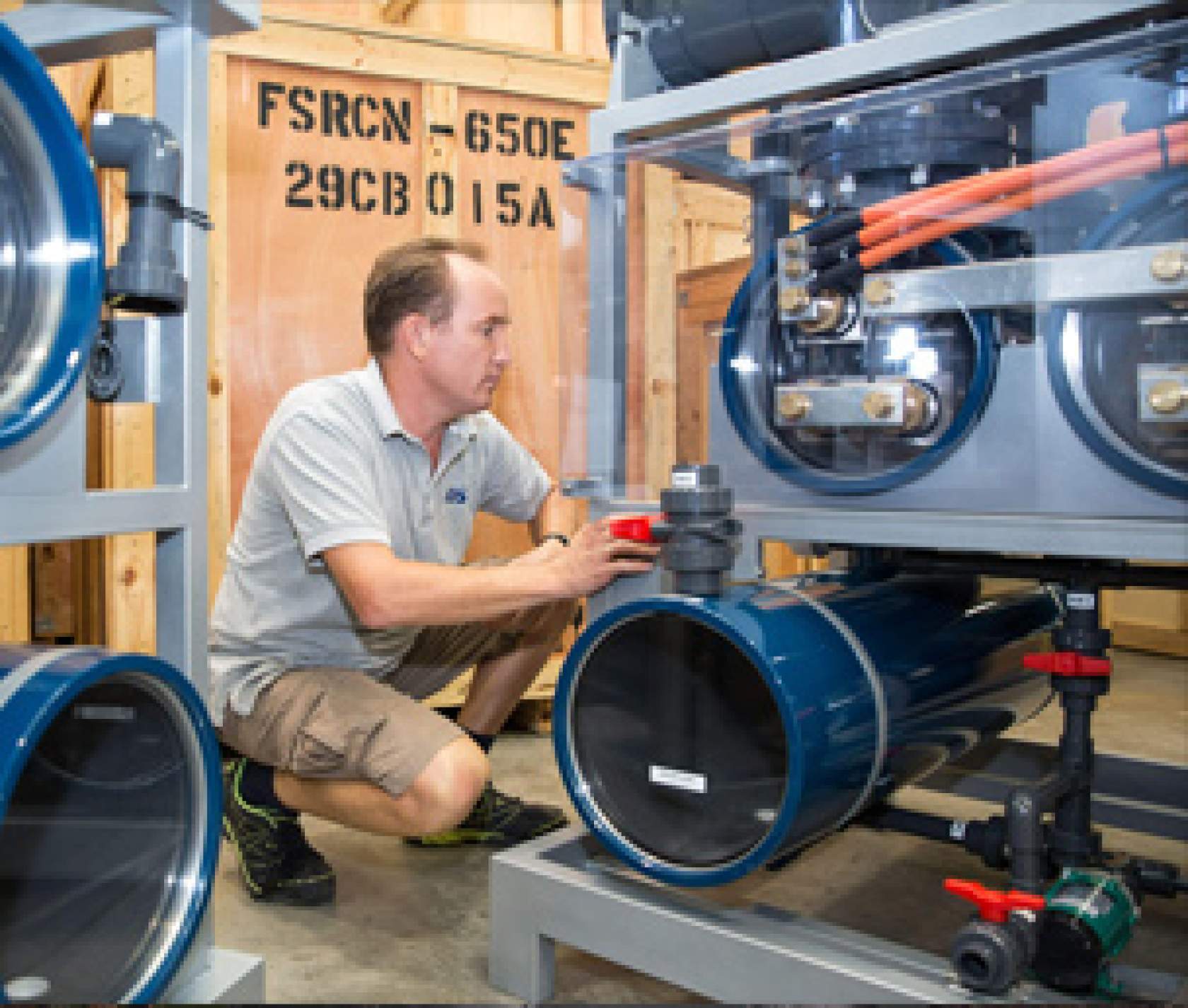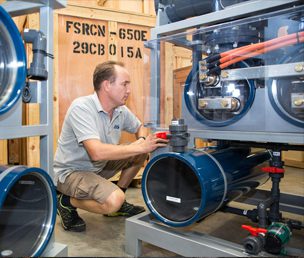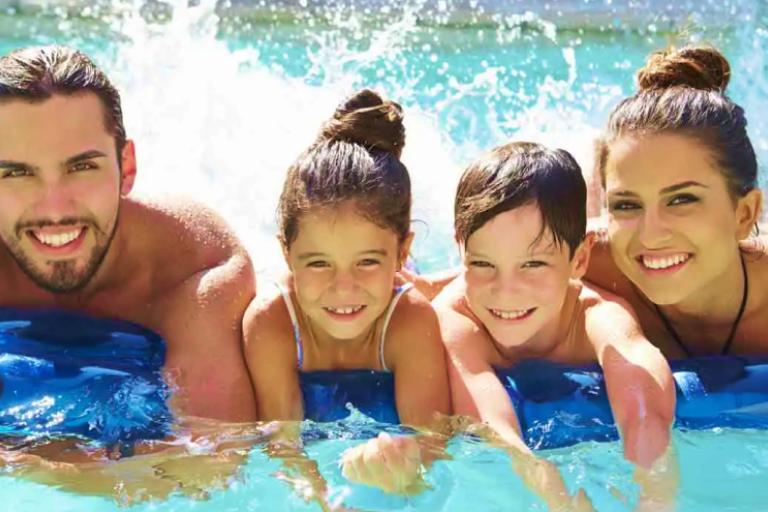EcoLine selected for Southeast Asian Games


Australian designed and manufactured water disinfection technology, EcoLine, will help to protect swimmers competing at the upcoming Southeast Asian Games, to be held in Kuala Lumpur, Malaysia in August 2017.
Australian Innovative Systems (AIS) has shipped three of its award-winning EcoLine water disinfection systems to Kuala Lumpur to be installed in the FINA standard, competition swimming pools at the Malaysia National Aquatic Centre.
Brisbane-based specialist aquatic architect, Will Marcus, group managing director of ARGO Architects specified AIS’s technology for the project.
AIS CEO, Elena Gosse says her company’s EcoLine technology would ensure that Games officials and athletes could enjoy ultimate peace of mind, safe in the knowledge that the pools’ residual chlorine levels were being maintained, with water remaining clean and clear in accordance with world-wide competition standards.
“We are so proud that our innovative, award-winning, Australian designed and made EcoLine technology will be on the world-stage in KL in August,” she says. “Our EcoLine systems disinfect water onsite and inline conveniently and automatically. Using a process known as electrolysis, water passes through electrolytic cells which convert minerals and salts in water to chlorine (typically sodium hypochlorite or calcium hypochlorite). The chlorine is then safely injected back into the pool water.”
EcoLine works in water with very low levels of TDS (total dissolved solids) – in fact as low as 1200ppm (parts per million) creating a swimming experience and quality of water that feels, smells and tastes more like a fresh water swimming pool.
Gosse says the inclusion of EcoLine at the games will help to avoid incidents such as the recent “green pools” debacle at the Rio Olympics.
“EcoLine technology is not only safe and reliable but ends the outdated practice of storing and dosing liquid chlorine,” she says.
TDS stability
Gosse said that while the Malaysia National Aquatic Centre had entrusted AIS’ technology for its games, she hoped Queensland’s Gold Coast Aquatic Centre (GCAC), the venue for the upcoming Gold Coast 2018 Commonwealth Games, would soon follow suit, instead of using a liquid chlorine dosing system.
She says a major advantage of EcoLine’s automatic inline disinfection over chlorine dosing systems is that water hardness and/or TDS (total dissolved solids) levels are kept more stable, therefore minimising the requirement to dump large amounts of water from swimming pools.
“With chlorine dosing systems, by-products such as calcium and sodium chloride can build up very quickly in the water and cause problems with water chemistry, especially water hardness. The only way to bring these levels back to a suitable standard is to dilute or dump water.
“We are aware that in some cases pool operators are intentionally adjusting their pool’s wastewater or backwash valve to continually and gradually lose pool water in an effort to keep TDS levels stable. This makes it almost impossible to detect the large volumes of water being dumped and is obviously of great concern environmentally.
“As an industry, we need to work together to preserve our planet’s resources. EcoLine is part of that
solution.”
AIS has also launched a domestic version of its EcoLine technology. See Edition 111 for more.



